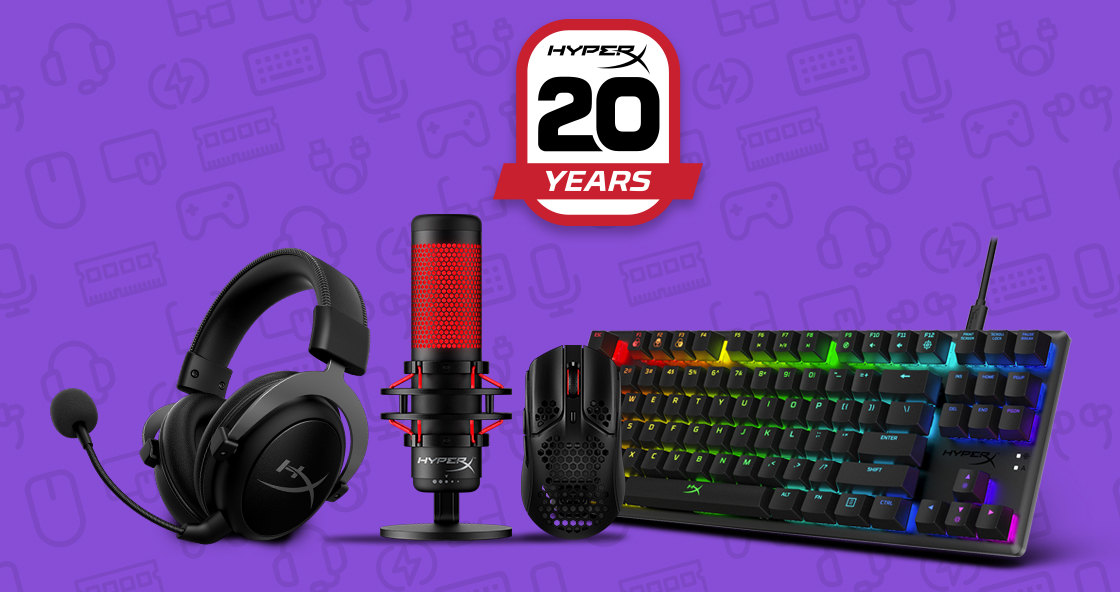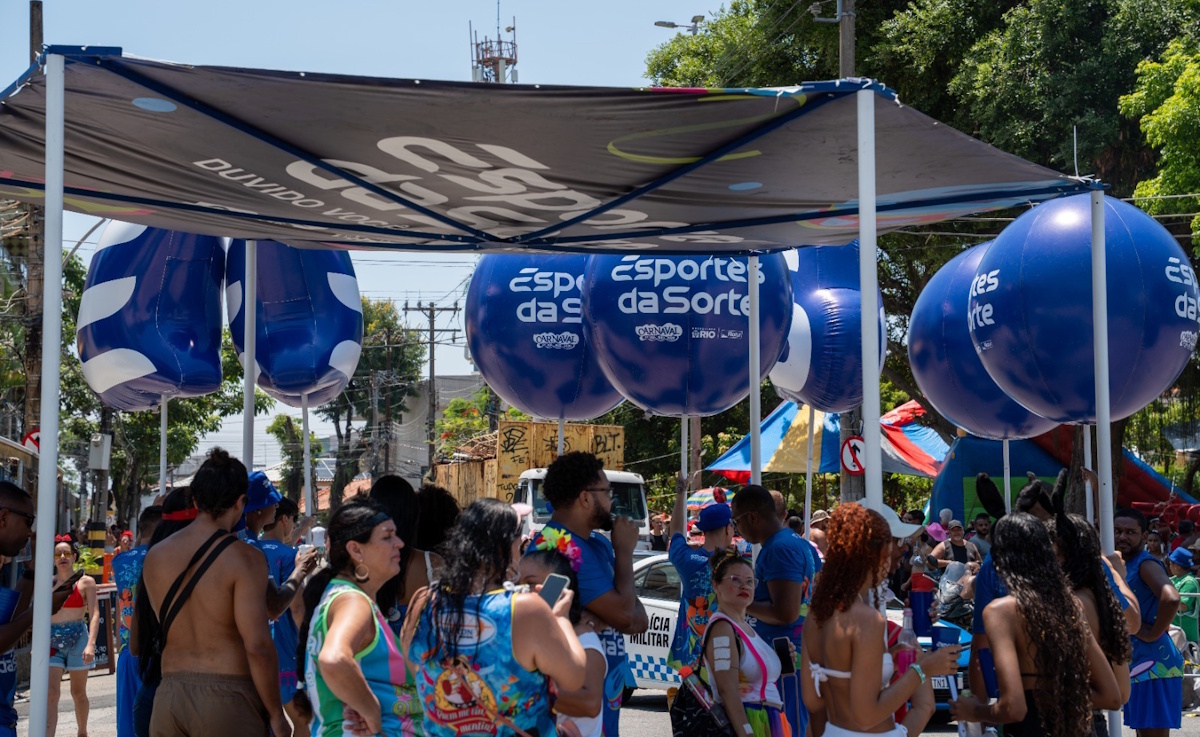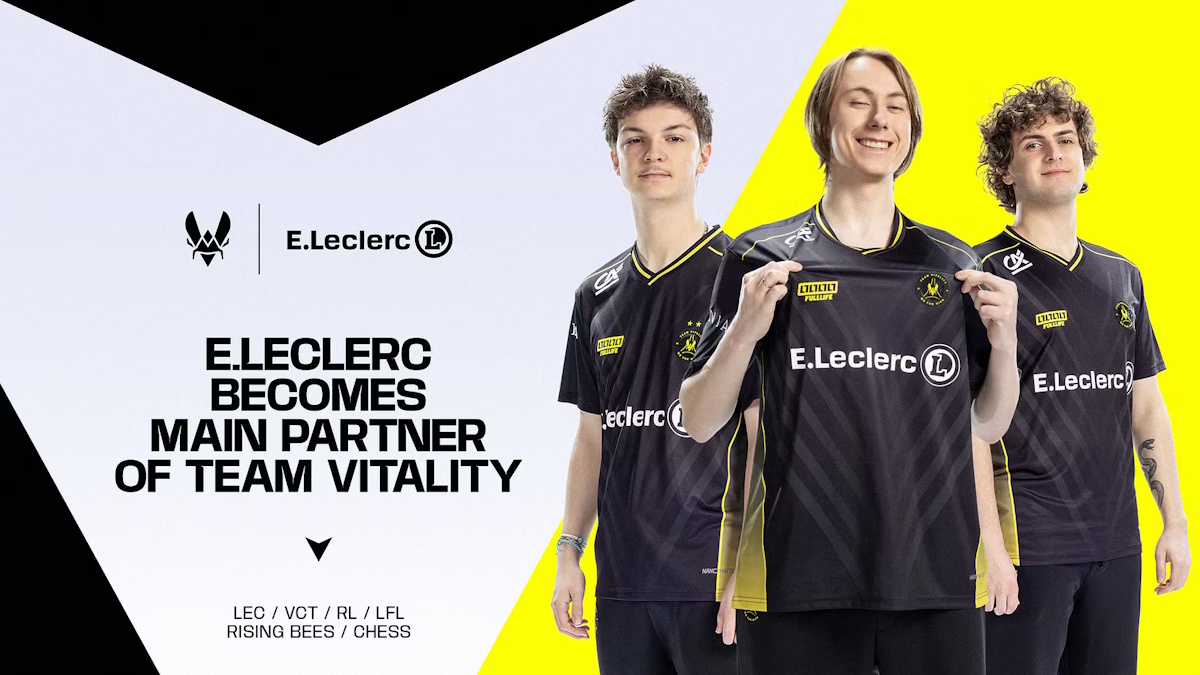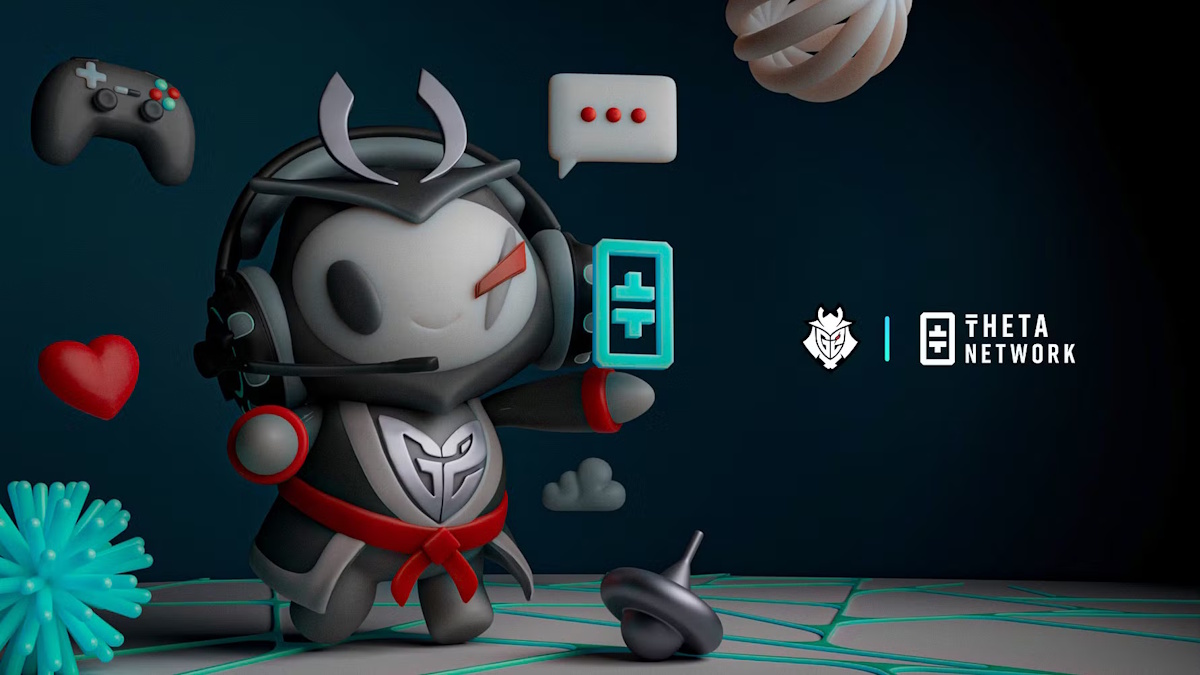eSports
20 years of HyperX: How Has the Gaming Industry Changed?

Paul Leaman, Vice President EMEA, HyperX provides some insight into just how much the gaming industry has changed in the last 20 years.
Over the last 20 years the gaming industry has changed and grown exponentially. By 2026 it is expected to be worth $321 billion. Besides this financial growth, we’ve seen huge strides in the visual aspect: video games from 8-bit graphics to almost lifelike characters and the introduction of VR. But it isn’t just the look and feel of games that has changed over the last 20 years. The technology we use to game, how we consume our games and who games, have all evolved in ways that few could have predicted in 2002. Here’s a look at some of the most fascinating developments in the gaming industry and what has led us to where we are today.
Evolving tech – the rise of wireless
Rewind 20 years and the PS2 and Xbox were still relatively new consoles to the market, having both launched within two years prior. For those who are not familiar with them, what they will probably find most surprising by today’s standards is that they came with wired controllers. Fast-forward a mere six years and we truly saw the beginning of a new wave of gaming technology – the rise of wireless. Xbox, PS3 and Nintendo Wii, all came with wireless controllers as standard and it would be the start of the modernisation of how people gamed. Wireless became the norm rather than the exception for controllers, headsets, mice, keyboards and chargers. As the technology continues to expand, more users are upgrading to wireless gaming hardware. The wireless gaming headset market alone, is expected to grow by 996.69 million USD during 2020-2024.
For a long time, wired connections led the way for enthusiast gamers. Having a more reliable, stable, physical connection would give you the least amount of lag or delay. However, significant research and development in the modern space has meant this is no longer the case. The ability to deliver to near-zero latency connectivity in wireless hardware has paved the way for its rise. Another important determining factor for gamers switching to wireless is due to aesthetics. Gamers can now create clean and tidy gaming set-ups that seamlessly fit into the design of their room.
Wireless headsets are becoming one of the most popular wireless gaming technologies. They offer freedom to gamers, with no cables to get tangled up in and the ability to move and talk freely. In today’s market most wireless gaming headsets have been designed so gamers spend less time charging and more time gaming in complete comfort with ergonomic designs. The biggest question mark has always been battery life and battery life degradation. However, this year we saw the first headset with up to 300 hours battery life and now gamers even have the option of in-ear buds, perfect for gaming on the move. Which begs the question, what will be possible next?
Gaming as a force for good
As the passion for gaming continues to grow around the world, it is no longer just seen as a hobby, but a thriving industry that is showing no signs of slowing down. Over 439 million people around the world tuned into esports events in 2020. This is a huge development from 2002 when competitive gaming was still very much in its infancy. While there is still a long way to go for gaming to be more inclusive, there have been huge strides taken in the last 20 years.
There is a long way to go to make gaming more inclusive for women and as it should be. However, over the last 20 years the industry has massively changed. There are now dedicated communities for women gamers, such as Sugar Gamers, r/GirlGamers and Women in Games International. These offer female gamers a greater voice and a safer space to make friends, share their experiences and learn more about the industry. We also have more female gaming ambassadors, that are improving women’s representation in games and communities specifically for female gamers. These play their part in facilitating a healthier environment and help pave the way to a brighter future for gaming.
Gaming is a great force for connecting different people, regardless of race, sexuality and gender. Gamers and the gaming industry is misunderstood by many, with typical stereotypes wildly outdated. In reality, the gaming community is over two billion globally and is very diverse and inclusive. For example, in the US alone, 65% of women between the ages of 10 and 65 play mobile games and research shows that 86% of UK parents game. If we think about COVID-19 and the global shutdown that ensued, gaming provided people with a way to stay connected virtually, even when they were physically isolated. Our research also showed that 50% of parents in the UK felt gaming improved their child’s mental health during lockdown and 52% felt their child coped better in lockdown because of gaming. And while we all need to stay on top of our screen time, gaming has a lot of benefits and can teach people values and skills. Multiplayer games foster teamwork and communication, gaming communities nurture belonging, and games can provide people a useful escape in troubling times. It is different for each person but ultimately, gaming has the power to be a force for good.
Online gaming
In the last 20 years, the world of online gaming has burst onto the scene and grown at a mindboggling rate. Since 2007, the online gaming market has continued to grow at a significant rate, with an annual growth rate of over 20% over the last five years. In the last 20 years, esports has gone from a vibrant niche to a central form of entertainment across the globe. Over 439 million people around the world tuned into esports events in 2020 and research from Nielsen found that 82% of global consumers played video games or watched video game content during the peak of the COVID-19 pandemic.
This meteoric rise has led to the opening of arenas such as the HyperX Esports Arena in Las Vegas. A multilevel arena designed to host every form of competitive gaming, the size and standard of the arena is one which historically was associated with traditional professional sports teams. Gaming is no longer just something people do in their spare time at home, it has place in a 30,000 square foot arena. We’re also seeing this level of growth as for many young gamers their idols and the “celebrities” they follow are no longer always in the traditional media. They’re streamers and content creators, such as Tim The Tatman or Valkyrae.
What to expect next
The transformation of the gaming industry over the last 20 years is nothing short of remarkable. The developments of huge online communities, the rise of gamers from all over the globe, from all different backgrounds, the constantly evolving technologies, and the growth of esports and online communities. Like any budding industry, it won’t stop here and it is going to be a fascinating journey. With the rise of new technologies, developing VR even further, completely immersive gaming; the possibilities are endless. And no doubt the next 20 years will be even more exciting.
Powered by WPeMatico
Brazilian Carnival
Esportes da Sorte transforms Carnival 2026 into a nationwide immersive experience

Leading Brazilian iGaming company Esportes da Sorte has transformed Carnival 2026 into a nationwide immersive experience, activating urban art installations, hydration stations and large‑scale attractions across nine cities in Brazil. As part of its expanded cultural engagement strategy, the brand is serving as an official sponsor in key Carnival locations and delivering experiential initiatives designed for revelers in the streets and major public spaces.
Esportes da Sorte’s nationwide platform builds on its history of investing in popular culture and public events, moving beyond traditional branding to create meaningful on‑site activations that enhance the urban environment and respond to the unique character of each city’s Carnival celebrations.
In Rio de Janeiro, the company’s efforts focus on the street Carnival experience with hydration points, cool zones and shaded areas in high‑traffic celebration routes. São Paulo’s megabloc circuits feature water trucks, hydration stations and on‑site urban support.
In Recife Antigo, one of Carnival’s cultural centers, Esportes da Sorte installed a standout Ferris wheel at Marco Zero, offering panoramic views of the festivities and historic landscape. Urban transformations like video mapping on iconic buildings and aerial installations along Rua Marquês de Olinda further blend public space with the Carnival experience.
Other cities such as Olinda and Salvador also feature tailored activations, including sensory design, refreshment tunnels and themed artistic displays that align with local traditions and festival dynamics.
In addition to physical structures, the initiative includes a robust communications strategy, sensory activations, public well‑being supports and content campaigns that amplify the carnival‑street experience across digital and traditional media.
According to Germana Casal, Production Coordinator at the Esportes Gaming Brasil Group, the goal is to “be present in a meaningful way at the country’s biggest popular celebration,” respecting each city’s identity and delivering initiatives that improve the Carnival experience for participants.
Esportes da Sorte’s Carnival 2026 project builds on the brand’s presence at more than 100 Carnival parties and street blocos in 2025, reinforcing its leadership role in Brazil’s largest cultural event and deepening its connection with urban celebration culture nationwide.
The post Esportes da Sorte transforms Carnival 2026 into a nationwide immersive experience appeared first on Eastern European Gaming | Global iGaming & Tech Intelligence Hub.
chess esports
Team Vitality announces E.Leclerc as new Main Partner

Team Vitality, one of France’s leading esports organizations, has announced a strategic new partnership with French retail giant E.Leclerc, naming the supermarket chain as the club’s Main Partner for 2026.
Under the agreement, E.Leclerc’s logo will feature prominently on Team Vitality’s international team jerseys, including rosters for League of Legends (LEC and LFL), Valorant (VCT EMEA), Rocket League, Rising Bees and Chess.
Shared Values and Fan Initiatives
The partnership aims to promote accessibility, wellness, and nutrition within the esports community, while bringing gaming culture into E.Leclerc retail spaces through immersive experiences, tournaments and activations designed to engage fans across France.
Team Vitality’s holistic wellbeing program, KARE, which supports performance, nutrition and mental health, aligns closely with E.Leclerc’s focus on responsible lifestyle initiatives. Together, they plan to champion inclusivity, provide unique gaming opportunities, and celebrate esports culture in both digital and physical environments.
With a global audience exceeding 10 million followers, Team Vitality’s influence in competitive gaming makes this partnership a landmark moment for both brands. E.Leclerc’s commitment to youth engagement and cultural connection positions the retailer as a significant non‑endemic supporter of the growing esports ecosystem.
Nicolas Maurer, CEO and Co‑Founder of Team Vitality, described the alliance as a historic milestone that will broaden esports’ reach across everyday life in France and reinforce its cultural legitimacy.
The post Team Vitality announces E.Leclerc as new Main Partner appeared first on Eastern European Gaming | Global iGaming & Tech Intelligence Hub.
AI chatbot esports
G2 Esports and Theta Labs Launch AI Agent Sami

G2 Esports has partnered with Theta Labs to launch “Sami,” a next-generation AI agent designed to enhance fan engagement across multiple competitive esports titles.
The AI-powered assistant will provide G2’s global fanbase with instant access to match schedules, player stats, team rosters, tournament standings, and real-time competitive updates. Sami supports major titles including League of Legends, Counter-Strike 2, VALORANT, Tom Clancy’s Rainbow Six Siege, and Call of Duty.
Accessible via the official G2 website and Discord starting February 17, Sami is built to deliver accurate, always-on responses to fan queries in natural language. From tournament updates to player performance metrics and G2-specific trivia, the AI agent reflects the organization’s unique brand voice and competitive culture.
AI-Powered Fan Engagement at Scale
Sami is trained and deployed using Theta EdgeCloud’s hybrid cloud-edge infrastructure, which integrates over 30,000 distributed edge nodes with cloud services from Google Cloud and Amazon Web Services. The system delivers approximately 80 PetaFLOPS of GPU compute power, enabling real-time processing and analysis at significantly reduced costs compared to traditional centralized cloud platforms.
The AI infrastructure dynamically assigns workloads to high-performance GPUs, including NVIDIA A100 and H100 cloud GPUs, as well as RTX 3090 and 4090 desktop GPUs, optimizing performance and cost efficiency. This decentralized architecture allows G2 to scale fan engagement globally while maintaining low latency and high reliability.
Strengthening Esports AI Innovation
Theta Labs has rapidly expanded its presence in the esports industry, powering AI-driven fan experiences for organizations such as Cloud9, FlyQuest, Evil Geniuses, NRG, Gen.G, Dignitas, 100 Thieves, Method, and Team Heretics.
According to Mitch Liu, CEO of Theta Labs, esports fans increasingly demand instant access to team data and competitive updates. AI agents like Sami enable organizations to provide 24/7 automated engagement while maintaining a unique community personality.
Sabrina Ratih, COO of G2 Esports, emphasized that Sami is more than a standard chatbot. Built to reflect G2’s playful and competitive tone, the AI assistant combines advanced machine learning with brand-driven communication to deliver both entertainment and functionality.
The Future of AI in Esports
The launch of Sami positions G2 Esports at the forefront of AI-driven fan engagement in competitive gaming. By leveraging decentralized GPU infrastructure and blockchain-powered cloud computing, the partnership with Theta Labs signals a broader industry shift toward scalable, cost-efficient AI solutions for esports organizations.
As AI integration becomes a competitive differentiator in esports, solutions like Sami are expected to redefine how teams interact with their global communities in real time.
The post G2 Esports and Theta Labs Launch AI Agent Sami appeared first on Eastern European Gaming | Global iGaming & Tech Intelligence Hub.
-

 Latest News6 days ago
Latest News6 days agoTRUEiGTECH Unveils Enterprise-Grade Prediction Market Platform for Operators
-

 Canada7 days ago
Canada7 days agoRivalry Corp. Announces Significant Reduction in Operations and Evaluation of Strategic Alternatives
-

 Acquisitions/Merger7 days ago
Acquisitions/Merger7 days agoBoonuspart Acquires Kasiino-boonus to Strengthen its Position in the Estonian iGaming Market
-

 Firecracker Frenzy™ Money Toad™7 days ago
Firecracker Frenzy™ Money Toad™7 days agoAncient fortune explodes to life in Greentube’s Firecracker Frenzy™: Money Toad™
-

 Blueprint Gaming5 days ago
Blueprint Gaming5 days agoBlueprint Gaming unleashes Frankenstein’s Fortune blending dynamic modifiers with multi-path bonus offering
-

 Compliance Updates6 days ago
Compliance Updates6 days agoHow to Apply for a Finnish iGaming License: Gaming in Finland Webinar on Application Steps and Technical Standards
-

 Big Daddy Gaming6 days ago
Big Daddy Gaming6 days agoBig Daddy Gaming® Expands European Footprint After MGA Licence Approval
-

 Africa7 days ago
Africa7 days agoEveryMatrix gains South Africa licence with customer launch pipeline on the rise



















